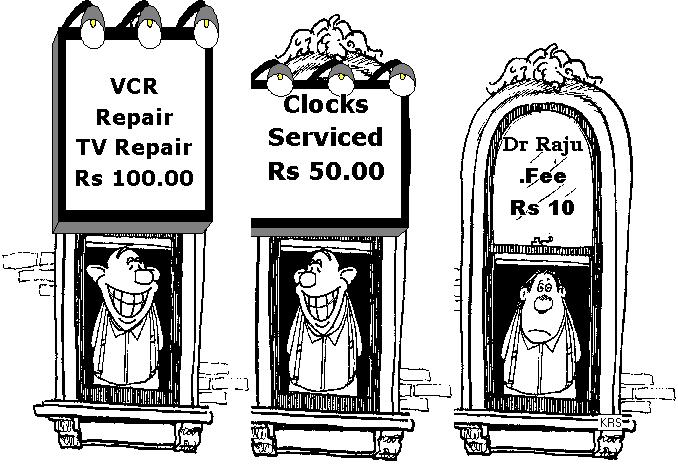
3 minute read
5 The importance of family practice
The Belly and the Members: Once the limbs felt thatthey did all the physical work and earned a living to feed the belly. The belly did no work except receiving feeds at regular intervals and sort them out at leisure. The limbs told the belly to look for food by itself. The belly had no option but to starve. The whole bodily system weakened. The limbs realised that they needed the belly to sort out food and nourish them. They realised how foolish they had been.
As health care became more specialised, the importance of family practice and primary health care diminished. People said "What is the use of consulting a family doctor? He only refers us to another doctor. Why should we go through this sorting office? Why not bypass him?" They began directly consulting a specialist based on their own opinion on what was wrong with them.
Advertisement
The Specialists did not insist on cases coming to them through a referral system as prior handling by "those GPs only complicated the 'scientific management' under the specialists." The problem with self-referral was that many care seekers ended up consulting the 'wrong specialist' whose main job was to rule out any diseases concerned with his/her speciality. Soon, the society had a hi-tech, expensive and often wasteful health care system with little improvement in the outcome. People wondered what went wrong.
17
Comments
Just as the stomach and the bowels have a primary non glamorous job of breaking down complex food, a primary care provider (family practitioner) has to have a holistic view of a patient's illness and sort out his/her various problems. Sorted out health problems may have to be specifically referred for specialised treatment. In UK, the necessity of screening all patients by their primary care physicians before any referral, has been stressed once again after a recentreview of the practice guidelines.
During the 70's and 80's, people in the USA went for specialist treatment in a big way. It was a disease oriented, procedural, piecemeal approach that was ruinously expensive and was soon controlled by the insurance industry. Now the society seems to have realised its folly and is reverting to a primary care approach that is patient-oriented, holistic, continuous and comprehensive. Do we also have to travel down the wrong path before realising the folly? Can we afford it?
18
For primary care physicians to develop as "health care advocates" for their patients, they must reverse the current trend and help their patients to avoid inappropriate entry into a specialist care not because they are costly, but because they waste everybody's time, incur unnecessary risks and divert attention from more relevant and effective solutions (Hart JT, 1992).
The main problem for a family doctor (GP) in India is that it is a lot of hard work to earn by ethical means. People, who are ready to shell out a hundred rupees to get their TV serviced, hesitate to pay a tenth of that amount to a family doctor. There is also the unfair competition from quacks and charlatans. As Shaw has said, "It is better to be a railway porter than an ordinary GP. The GPs are offered disgraceful prices for their advice and the medicines."
No wonder that all but the staunch idealists succumb to unethical practice and easy money (see Chapter 18). We need to find ways of providing a 'level field' for family practice. We need to make ethical family practice worthwhile for the practitioner in terms of the earnings, quality of life and self-esteem. Otherwise things can only get worse for the community.
19



